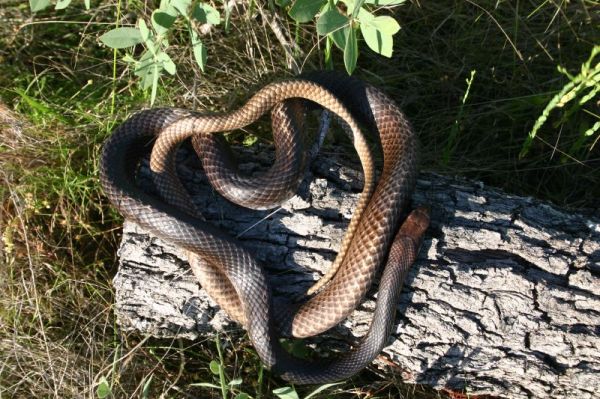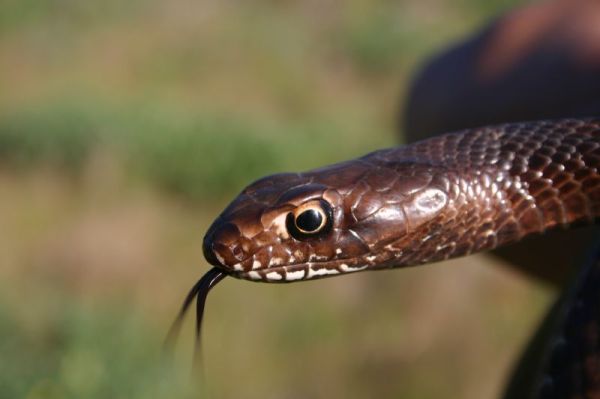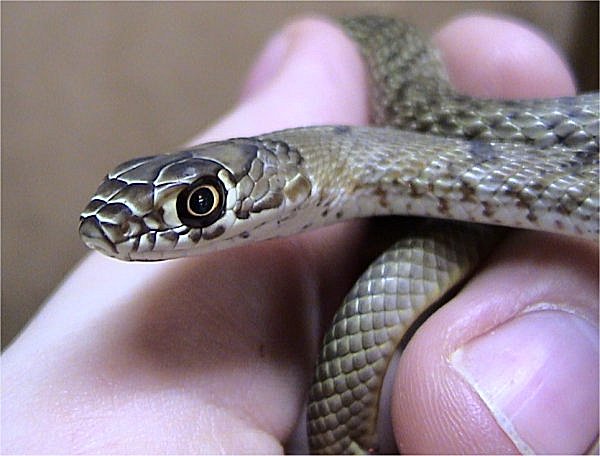Wildlife North America . com North American Animals - mamals, birds, reptiles, insects |
Western Coachwhip (Masticophis flagellum testaceus)
Coachwhip. Sawdust Ranch near Somerville, Texas. Photograph by Clinton & Charles Robertson. Some rights reserved. (view image details) 
Coachwhip. Sawdust Ranch near Somerville, Texas. Photograph by Clinton & Charles Robertson. Some rights reserved. (view image details) 
Western Coachwhip, Masticophis flagellum testaceus Photograph by Dawson. Some rights reserved. (view image details)
WESTERN COACHWHIP FACTS
DescriptionThe Western Coachwhip is variable in color and can be tan, brown, yellow, or pink. They sometimes have slightly darker bands. The snake is slender with a thin tail. The underside is pink. The eyes are large with round pupils. Size length to 200cm Environment open areas in desert, grassland, scrub, rocky ground. Rests in rodent burrows or amongst rocks, logs Food Eats small mammals, birds, bird eggs, lizards, snakes, amphibians, and carrion Breeding Coachwhips are oviparous. Lays eggs in early summer. Eggs hatch in 45 - 70 days. Range found across Texas, Arizona, New Mexico, Colorado, California and much of Mexico Notes Coachwhips are non-venomous. They can be nervous snakes and will vibrate their tail and strike when threatened, although they will flee if given the opportunity. Classification
Relatives in same Genus Red Coachwhip (M. flagellum piceus) Schott's Whipsnake (M. schotti schotti) Home | Mammals | Reptiles | Birds | Insects | Privacy Policy | Disclaimer | Contact Us |